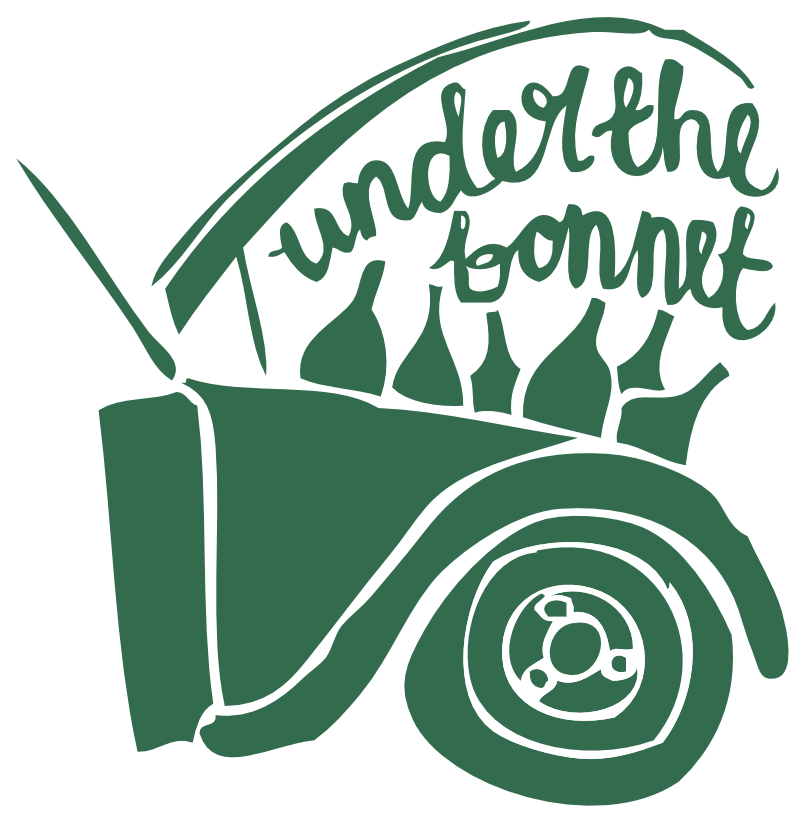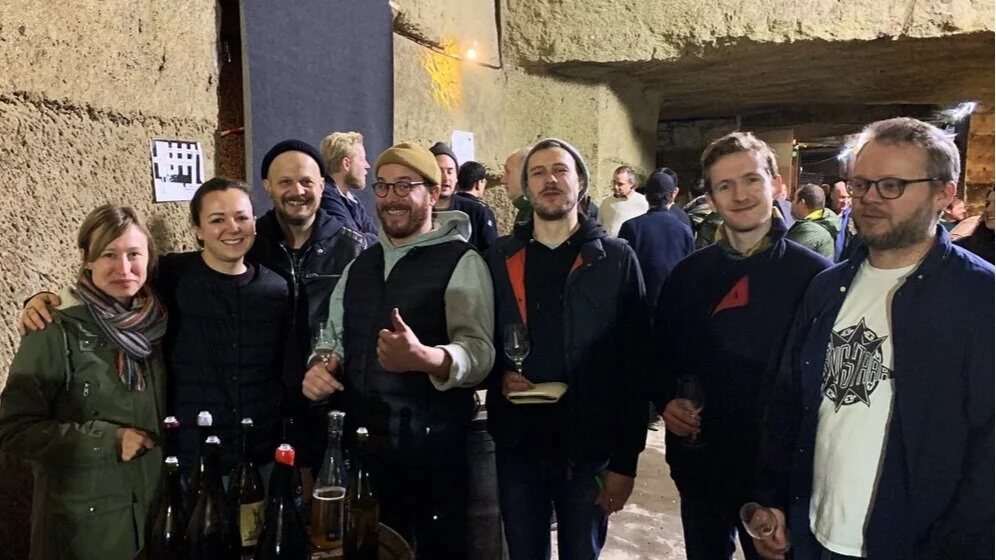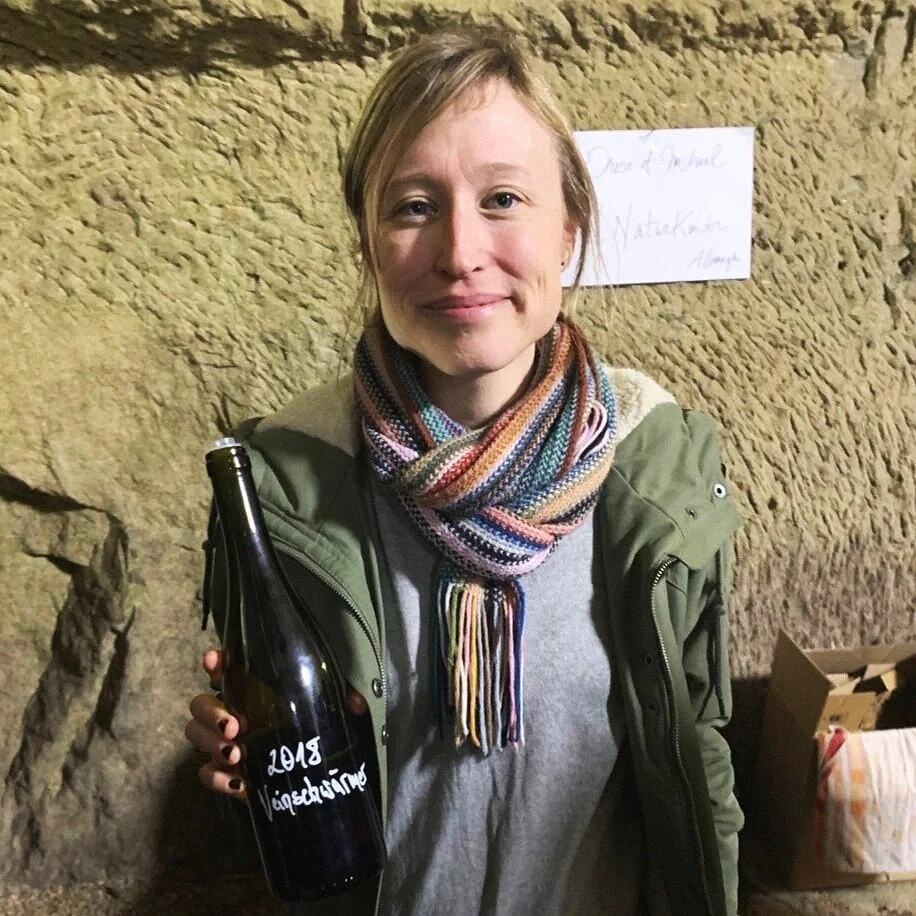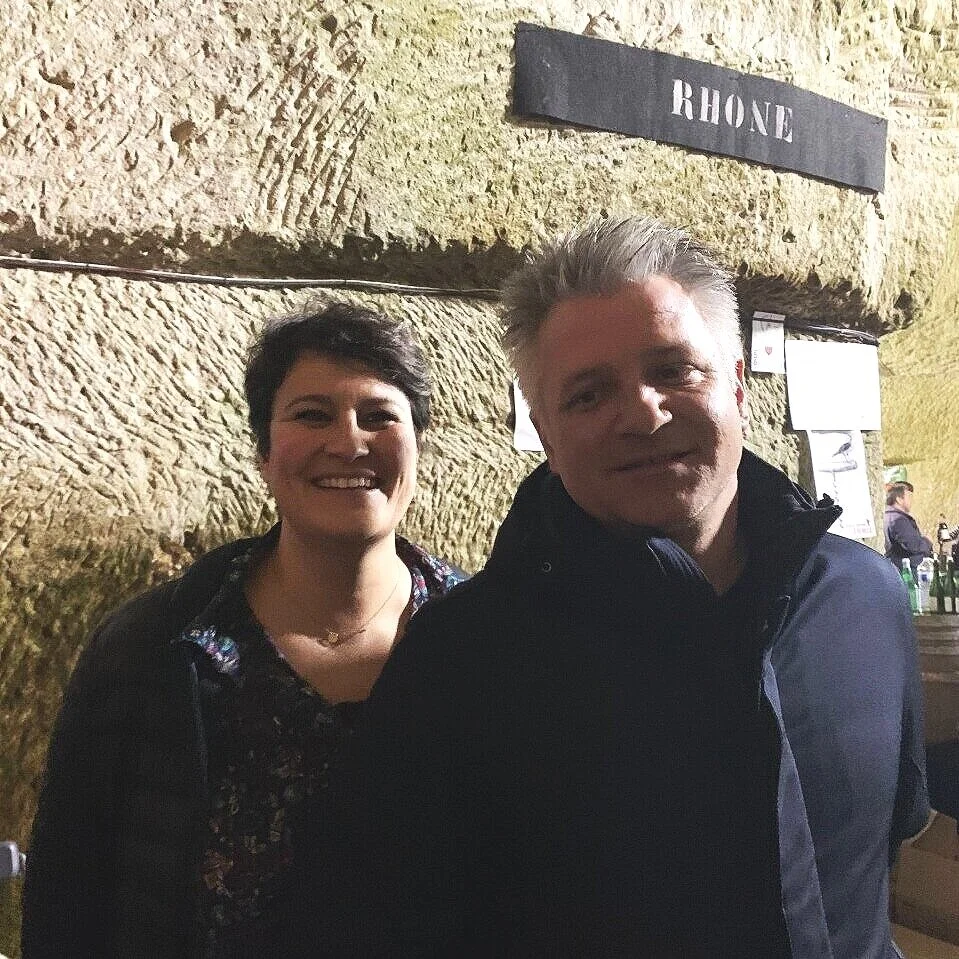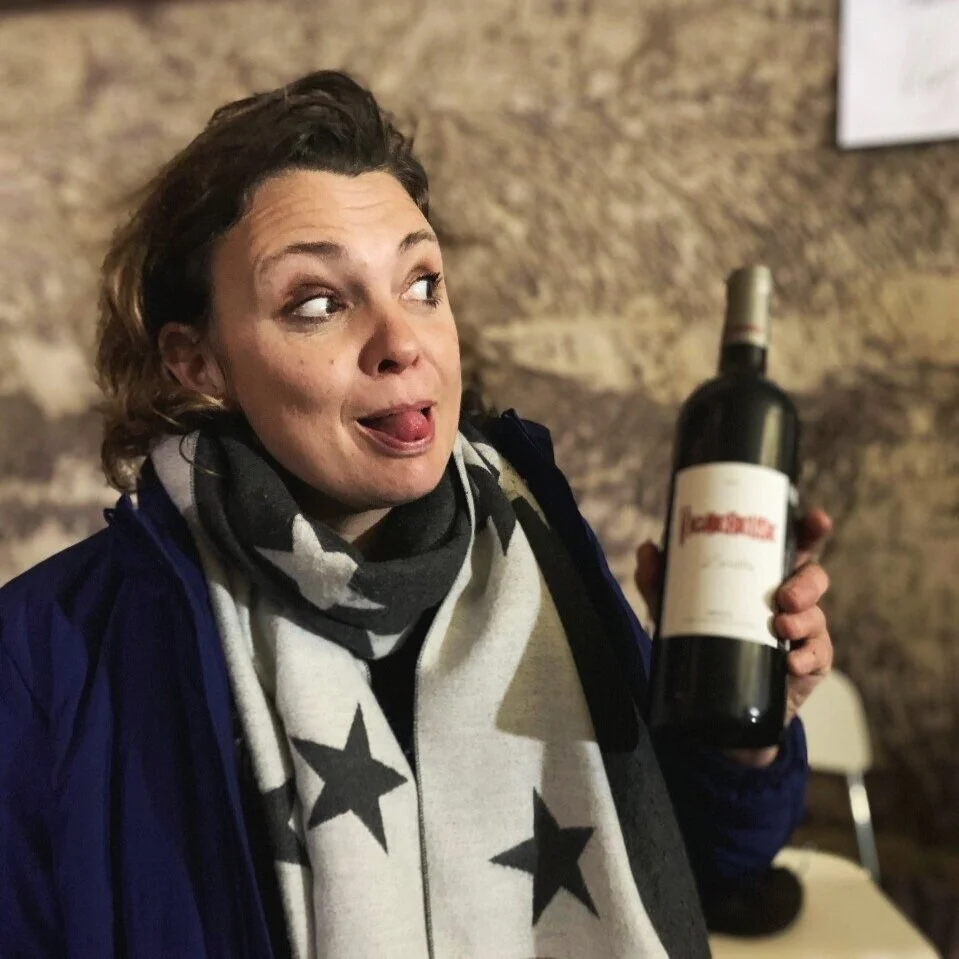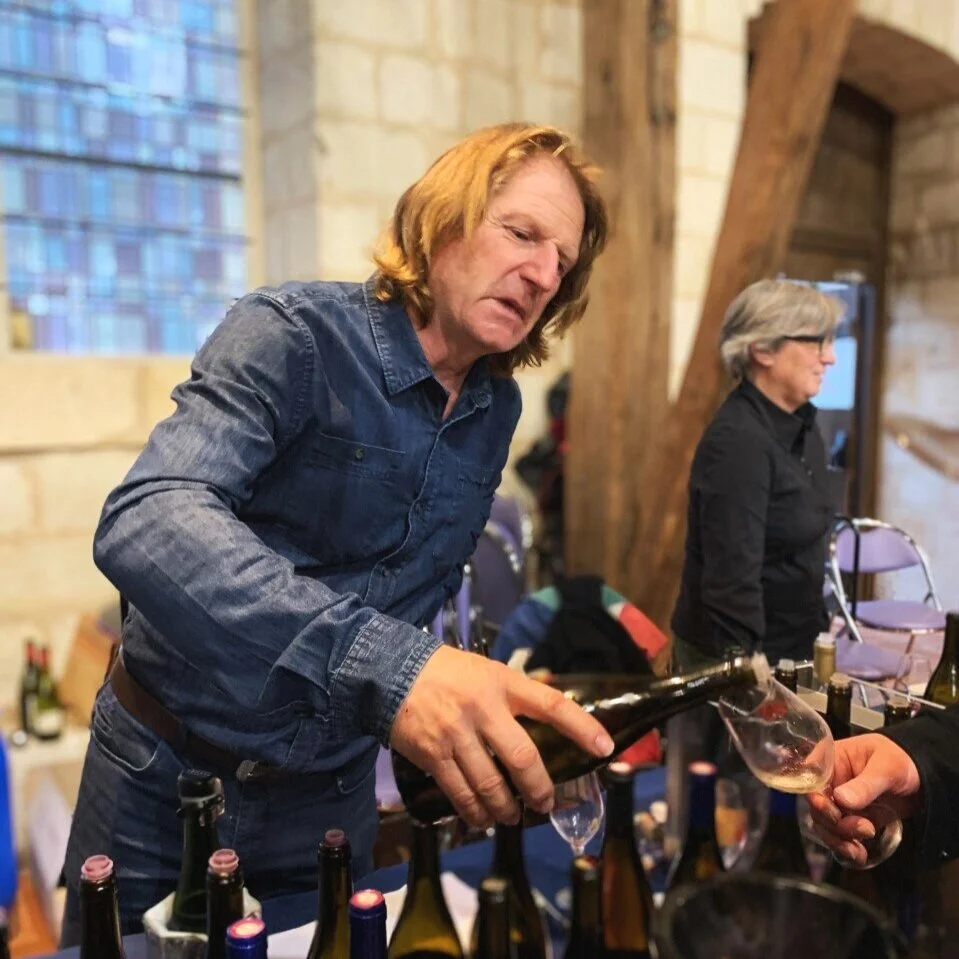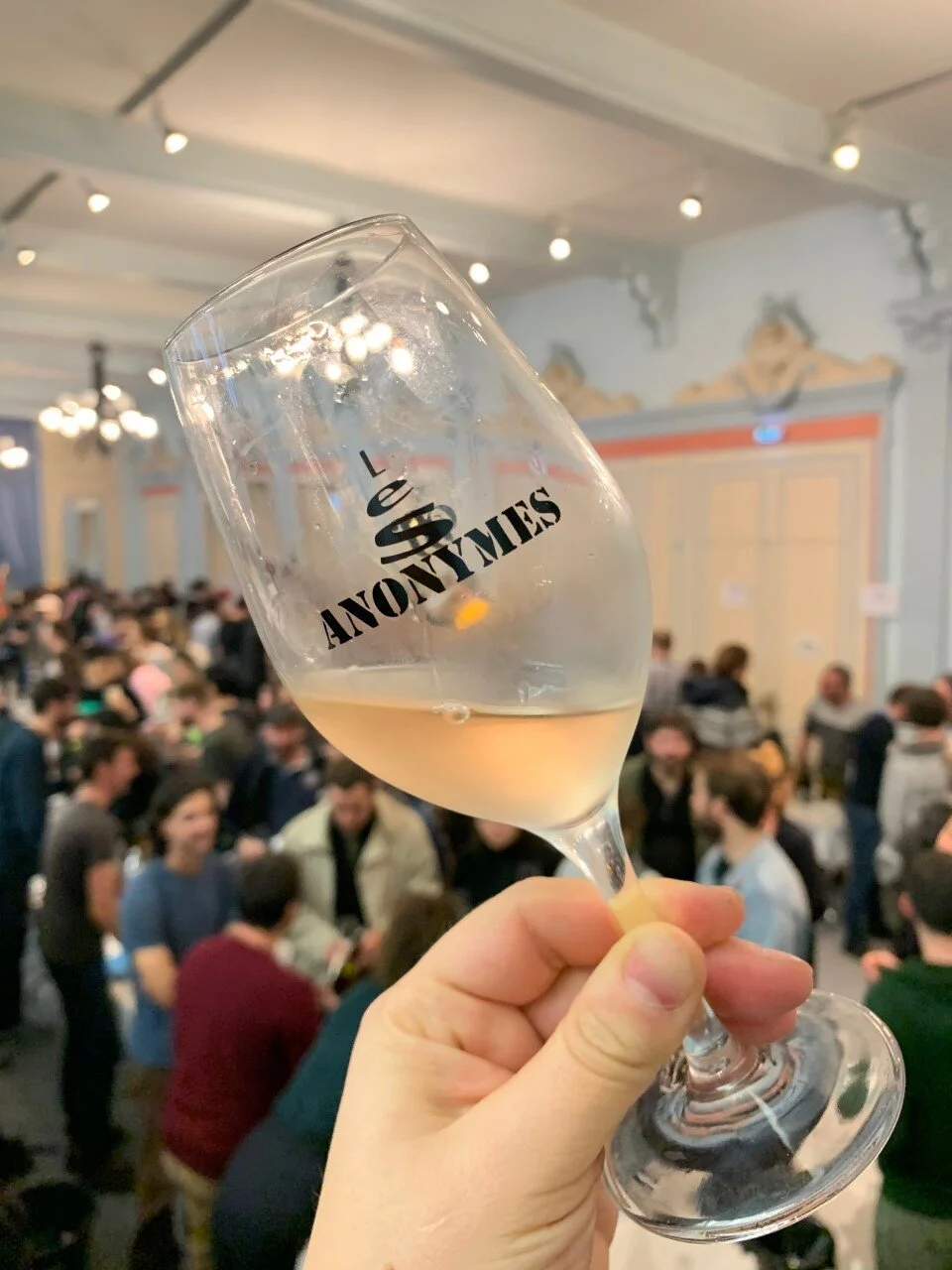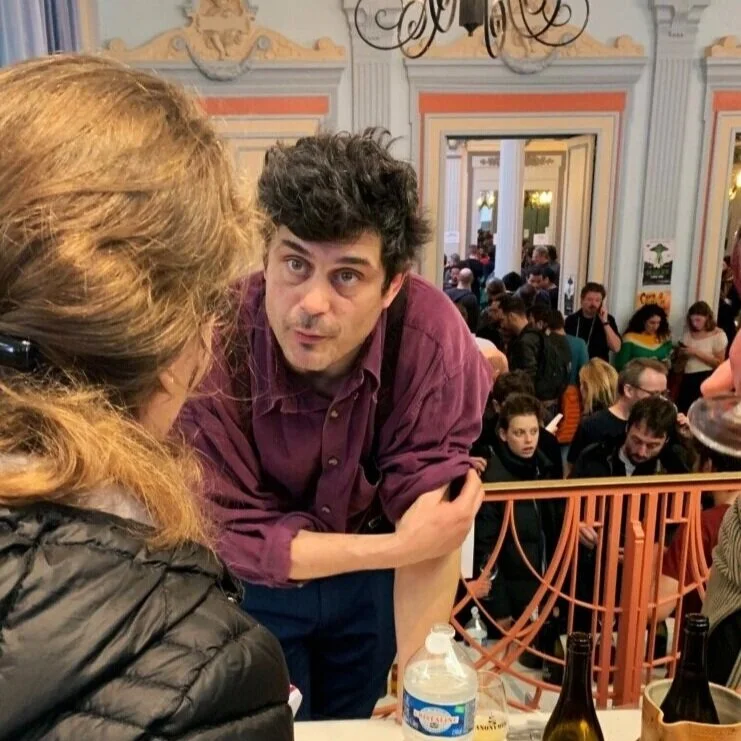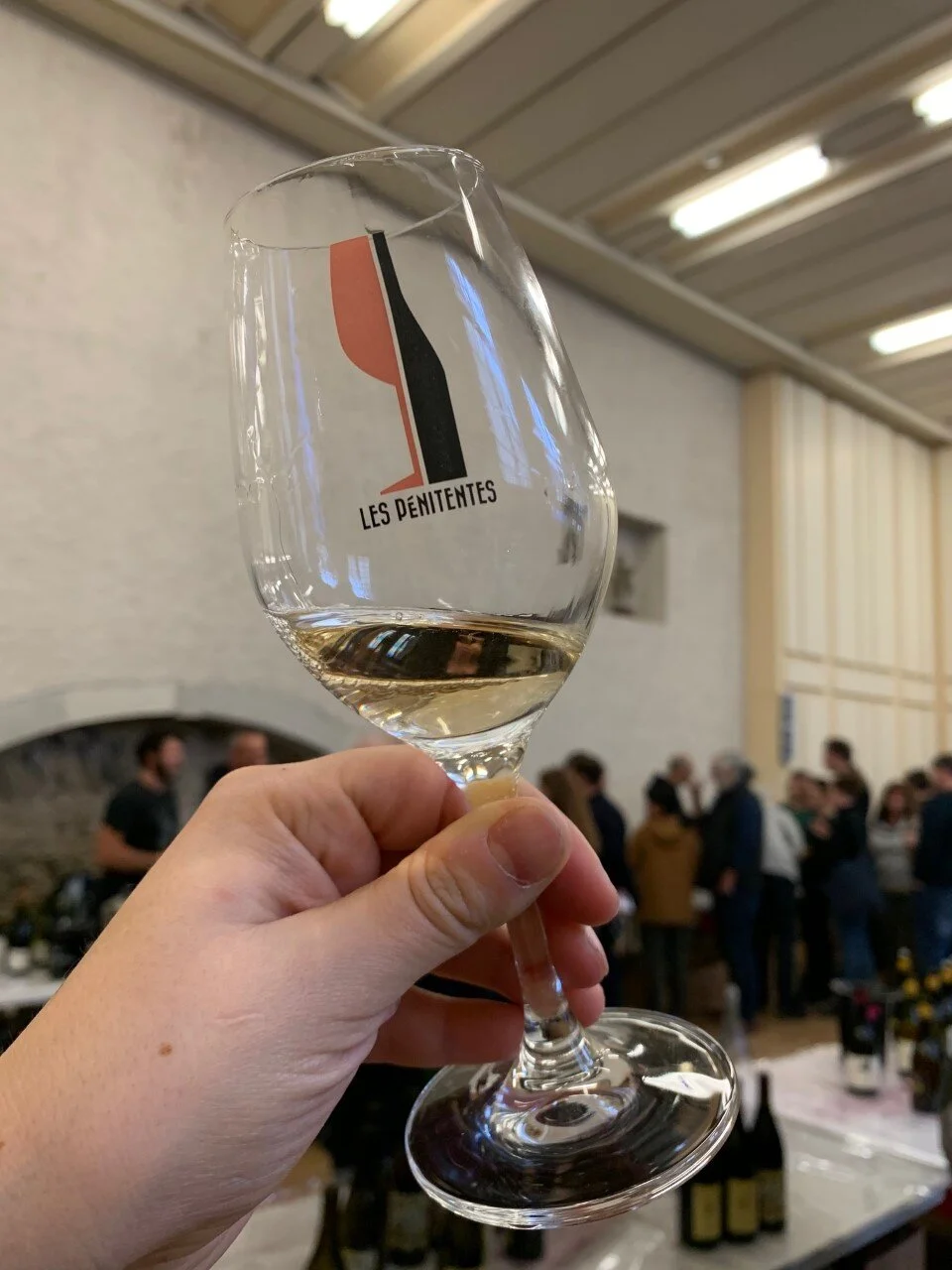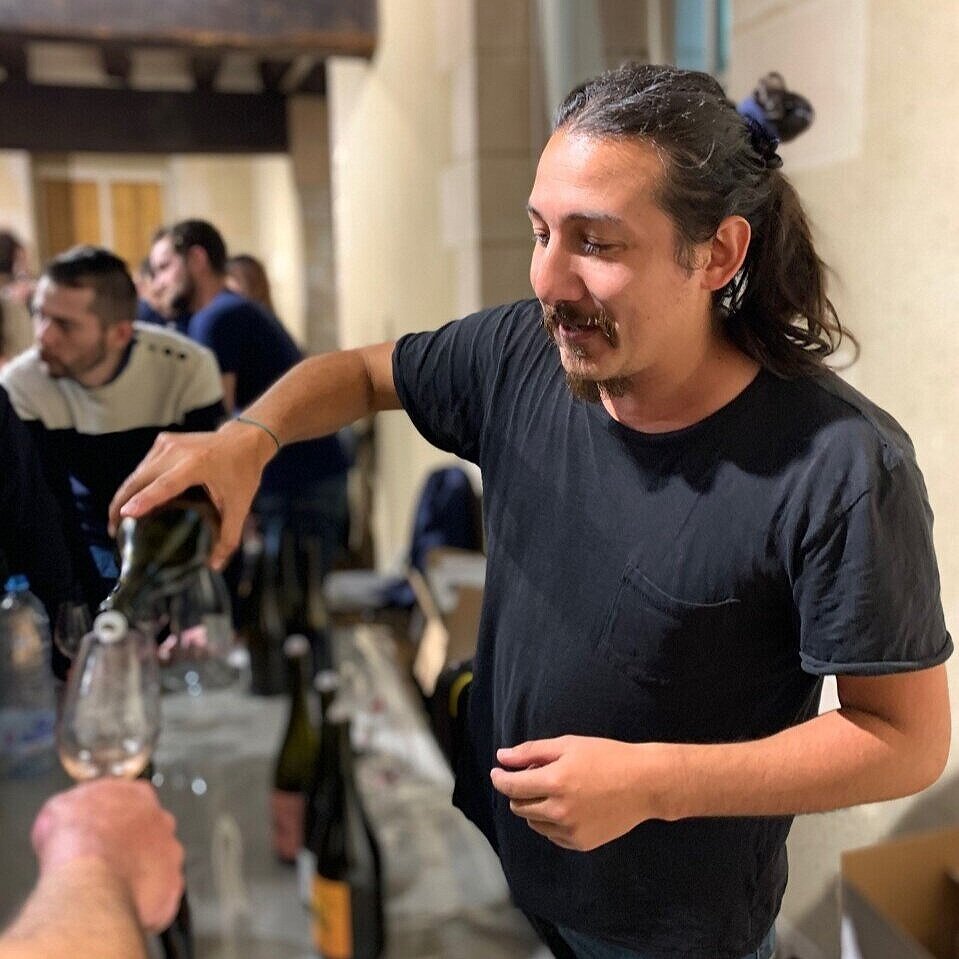Interest in organic, biodynamic and natural wine has exploded over the recent years. Once a niche style, curiosity about naturally made wines has spread beyond its roots in France and the recent boom of natural wine fairs has helped introduce more consumers to the notion of “less is more” in winemaking.
One of the great things about running a small independent business is bringing you, our customers, fresh flavours to excite and intrigue your tastebuds. What follows is an attempt to describe a "road trip with wine" as "hard work"…
The Loire Valley is a hotbed of the natural wine movement. The first weekend of February, the Loire area in France hosted four different wine fairs between Angers and Saumur. Each of them have their own identity, style and an underlying philosophy:
Where traditional tastings or wine festivals can be austere and competitive, often located in soulless conference centres worlds away from actual vines, the salons de Loire - as the annual marathon tastings in the Loire Valley are called - better resemble a friendly party, where like-minded souls come to drink and visit. These independent wine fairs are located in vibrating places, rich in history and all emanating a sacred vibe.
Business is done, but celebration, laughing and friendship come first.
La Dive Bouteille, February 2–3 2020
Saumur, France
The most well-known of the salons de Loire, as the annual marathon tastings in the Loire Valley are called, and the most romantic in terms of setting, is La Dive Bouteille— or simply La Dive—which takes place in the dramatically low-lit Ackerman Caves of Saumur, built in 1811 to age sparkling wine.
La Dive is a public tasting for anyone who wants to come—and anyone who can withstand being chilly, tired, and on your feet for hours on end. It’s worth it; having expanded beyond the Loire to the wines of greater France some years ago, today La Dive features over 200 winemakers from around Europe and the southern hemisphere, as well as small-batch spirits and even vinegar producers. Under the vision of organizer Sylvie Augereau, there’s so much to appreciate and learn during these two days, especially if you have some French under your belt to ask questions.
Micheal Voelker and Melanie Drese spent many years working in other fields, traveling the world and living in Heidelberg, Regensburg, London, and New York. In 2013 they returned to begin taking over Michael’s father’s winery in Kitzingen in Bavarian Germany. Michael’s father is a long time winemaker, who in fact sits on the quality control board for the appellation, but has been very supportive of Michael’s desire to make wine without additives. They began to make natural wines under the 2naturkinder label as a side project for the winery, and in 2019 have fully expanded the project to take over the winery’s production. Michael has a particular interest in bats in the vineyard, and a few of the labels are inspired by them. He obtains bat guano from a local nature conservatory, which he uses when fertilizer is required.
In 2020 they will be bottling a new 2018 Pinot Gris/Riesling blend called Veinschwärmer, which is inspired by an endangered bat species which has been reported roaming the vineyard. Both vineyards are right next to each other, but the riesling has been planted a bit later so it is the younger one out of those two. For them the variety didn’t work very well by itself and after experimenting with it for 2 years, they had the idea to mix both varieties and Veinschwärmer is the end result!
Husband-and-wife team Laurence and Antoine Joly farm 17 hectares of vineyards planted with Grenache and Syrah. Organic farming for more than 40 years (Antoine’s father grew grapes but sold them to the local co-op). All grapes are de-stemmed and only concrete is used for ageing and fermentation. Their house style is all about freshness. Only when needed wines see a tiny bit of sulfur on bottling. Soil is clay on limestone with a bit of limon.
In 2020 they would like to plant more vines, especially the ones which offer freshness like Cinsault or Mourvèdre.
A five-hectare domaine established by Marine in 2013. She began to learn about viticulture while living in Turkey then continued studying in Beaune. After 'finishing school' Marine spent three years working with the Plageoles family. The vineyards are situated on the Cordais plateau on south-east-facing slopes, the soil is schist on limestone. The location is less argilo-calcareous than the rest of Gaillac. All wines are fermented and aged in fibreglass. No sulfur is used on the reds.
This spring Marine will be bottling up a new pet-nat: 2019 Broco Lee. The grape variety is Braucol from 25 year old vines. Hand harvested, no added yeast or sulfites. Fermentation that ends in the bottle and traps the gas naturally created during fermentation. No filtration. The end result is a dry pet nat, slightly vegetal and very refreshing!
Greniers St. Jean, February 1-2 2020
Angers, France
The Grenier St.Jean & Hospital St. Jean events in Angers are organised, as every year, by the Madavin Association volunteers, also raising funds during the fairs; this non-profit association was created by a group of biodynamic and biological winemakers aiming to contribute to the reforestation of the Madagascar highlands. Its scope of work ranges from offering direct support to the villagers, to planting and upkeeping the lands, or distributing solar panels or general assistance.
Top fact! Salon 1 Grenier St. Jean (XII-XVI) was the place where all food commodities were kept all the while it was a military medieval hospital, turned into a halfway house during the 1598’s Great Plague; Salon 2, at the Hopital St. Jean, now hosts the amazing Jean Lurçat museum and the Contemporary XX Century Tapestry museum, but in the XIII century it functioned as a hospital for the poor and the sick, managed by 30 monks, sisters and lay brothers.
Ferme de 7 Lunes (Jean Delobre)
La Ferme des Sept Lunes is a 10-hectare farm perched in one of the highest areas of St Joseph, if you are visiting the farm you have to make your way up a winding, hairpin-twisty road that climbs 350m from the valley floor, not for the faint hearted. The farm has been in the family for three generations, Jean converted to organic and biodynamic agriculture in 1997 and only uses sulphur when he really has to in winemaking. Each cuvee is site specific with Syrah, Roussane, Marsanne, and Viognier, along with a bit of Gamay planted mostly on Granite soils.
Jean has been experimenting with a new skin-contact cuvee which is nothing like the rest of his wines: 2019 Underground Orange Velvet: 100% skin-macerated Viognier pressed with Roussanne skins and aged in underground amphora.
Terres de ROA (Loren Tisserand)
The vineyard of Terres de ROA extends over 18.5 hectares spread over the communes of Monétay sur Allier (sandy soils) and Breuilly Cesset (granitic soils). It is run by Lauren and her parents Claudine and Luc Tisserand. They work with four grape varieties: Chardonnay, Gamay and Pinot Noir, which are common in this region of the Loire Valley - and the Tressallier grape variety, which is grown only in Saint-Pourçain. Their philosophy: just let nature take its place.
On the 7 & 8 of March you can find Loren at Canons on in Nantes, a natural wine fair only featuring female winemakers!
Les Anonymes, February 2 2020
Angers, France
Les Anonymes takes place at the Abbaye du Ronceray in Angers. and has been set up by Babass (alias Sébastien Dervieux) and Jean-Christophe Garnier (both from Anjou, Loire) with the goal to provide professional tasters the opportunity to meet (and taste the wines from) a small group of mostly-unknown vintners, or anonymous vintners if you prefer, that's why the name of the event. All these winemakers/growers share the love for real products made from organic grapes and vinified with indigenous yeast and little or no sulfites.
Top fact! The l’Abbaye du Ronceray was placed in the Ronceray Abbey, an all-female abbey built in the twelfth century. It was the only women-run monastic settlement in Angers, and also one of its most important dioceses. The nuns were later forced to move out as the Abbey became a war hospital during the eighteenth century.
Situated at the far eastern edge of the Muscadet zone, the village used to have around 300 hectares of Chenin under vine, now only 2.5 remain; of which Matt farms 1.8. Matt set up shop in 2012, leasing about 1.8 hectares of Chenin and a mixed red vineyard; 0.3 hectares of Gamay, Grolleau and Hybrid 54-55. Working out of a tiny stone barn, Matt prefers to use a very hands-off approach in the winery without the use of chemical products in the vineyard.
In 2019 Matt is bringing out three new cuvees. From what we tasted, freshness plays a big role.
Matt: “I like to experiment a lot. Every year the results seem to be getting more and more refined. Also, I never name my wines. I leave it up to the importers.” All his labels are created in collaboration with a local photographer.
A Gamay specialist, Rémi farms 2.5 hectares of 20-year-old isolated vines that he leases from local biodynamic grandfather Jacques Caroge. The soil is micro granite - which suits Gamay particularly well. He has recently expanded with the addition of some Melon de B. and some Chardonnay taking him up to around 4.5ha. He has recently gained organic certification and works the vineyards with his mother-and-daughter team of shirehorses.
Remi has now managed to bottle his 2019 Samplemousse cuvee - something he wasn’t able to do up until recently due to financial difficulties. Hand-harvested Gamay, cold macerated for four hours, fermented in fibreglass for two to three weeks. A full and exciting rosé with structure, fruit notes and a balanced acidity. The grapefruit flavour comes from the parcel's granite soil. Coming soon!
Thomas Boutin used to work in large conventional wineries; in the Loire and also the USA before having enough with large-scale production. Commencing his own project in 2008. His three hectares of vineyards are a stone’s throw from the Layon river. Soils are schist and quartz . All wines are made without chemicals, are unfined and unfiltered with little use of sulphur.
This year Thomas will be bringing out his new 2018 Celsiane - a cuvee he has been making repeatedly since 2008. 100% Chenin, from five different plots with 20-30 as well as 60-70 year old vines. It’s directly pressed and after 10 months of fermentation he racks the wine with an addition of 15mg/l of sulfites. He then waits 1 month before bottling. Unfiltered.
Les Pénitentes, Jan 31 - Feb 2 2020
Angers, France
Les Pènitentes is created by the gang of Thierry Puzelat , Hervé Villemade and Agnès and René Mosse - who self-identify as "the elders". It is the smallest of the natural wine fairs of Angers, and consists of about thirty handpicked organic/biodynamic wine makers. It is much more intimate than the other events, usually filled with connoisseurs looking for the "essentials" of vins naturelles.
Top fact! The tasting event usually takes place at Hotel Les Pènitentes, a fifteenth century mansion that takes its name from the religious community founded there in 1640 to host women condemned to prison.
As the location was unavailable this year, it took place at the Hôtel de la Godeline.
Based in Nacimiento, Bio-Bio, Chile - with some vines in the Itata Valley. He farms around six hectares; some vines are over 200 years old. Grapes are Pais, Muscat, Corinto (Chasselas) and Semillon. After working in vineyards across the world, Roberto set up on his own in 2015 (he is a busy chap as he still has a day job working as an organic consultant).
Roberto is one of only 10 natural winemakers in Chile. Every year he tours Europe for a couple of weeks to promote his wines: “This trip is expensive but essential to get the word out!” Read up on our recent interview with Roberto and all his latest cuvees.
